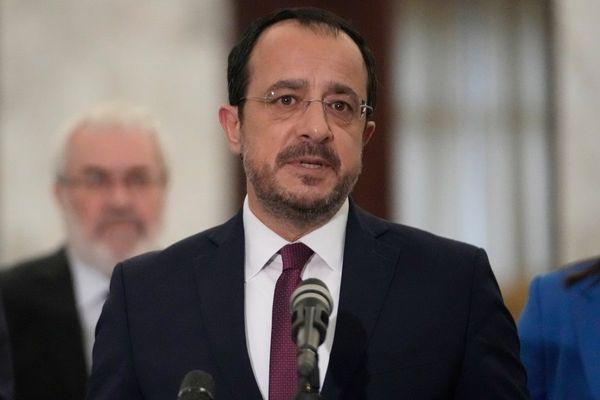The geopolitical fallout from Russia's unprovoked invasion of Ukraine is on display at the ongoing G7 meeting in Germany, where climate change is a key topic of conversation Monday.
State of play: In the bucolic Bavarian Alps, world leaders are wrestling with how to alleviate short-term worries about securing adequate energy supplies and lowering energy prices without tanking efforts to limit the severity of climate change.
- There is a tug of war between how much G7 nations will emphasize burning more fossil fuels in the short-term with the transition to clean energy in the long run.
- This stands in stark contrast to last year's G7 meeting in Cornwall, England, where climate change was a top priority heading into the Glasgow Climate Summit.
- The question then was how far and fast some of the world's biggest emitters would go to slash emissions. Now these questions have taken on more of an "if" quality to them.
Why it matters: With the price of oil, gasoline and natural gas at painful levels in Europe and the U.S., the balance that leaders strike will help determine whether the Paris Agreement's targets are met.
Zoom in: Germany, which is hosting the G7 and is the most reliant on Russian energy imports, is reportedly seeking to delay a phaseout on funding overseas fossil fuel projects.
- The U.S. is facing record-high gasoline prices, which is an albatross for President Biden and the Democrats heading into the midterm elections. Biden has called for oil companies to boost their domestic production and refining output.
- Germany has announced the restart of some of its shuttered coal-fired power plants, which use the most carbon-intensive fuel source, in order to help build up natural gas stocks for next winter. Other European countries are making similar moves.
The big picture: The U.S. and nations in the Middle East and possibly Africa are taking on new importance as natural gas exporters to Europe, with several new terminals for liquified natural gas already approved for the continent.
- U.S. LNG exports to Europe have nearly tripled since March, according to a joint statement Monday from Biden and European Commission President Ursula von der Leyen.
- Climate activists and scientists have warned that building infrastructure that could be used for the next few decades could lock in enough emissions to nullify the Paris targets.
Yes, but: The imperative of providing relief from high energy prices now may cause the G7 to back away from implementing some of its most recent climate commitments.
- These include the curtailment in overseas fossil fuel funding, an "eventual" coal phaseout as well as a push to generate electricity from a grid that is "predominantly decarbonized" by 2035.
- Fatih Birol, the head of the International Energy Agency, is participating in today's G7 meetings and urging countries to take steps aligned with a transition to clean energy, per IEA.
- A potential price cap on Russian oil, which is also being discussed, might allow Europe to import Russian oil but at a predetermined, artificially low price. Proponents say this could lower gasoline prices while also reducing oil revenue going to Putin's regime.
- But it could also boost demand for gasoline, leading to more fossil fuel consumption and higher emissions.
What they're saying: "We’re in a moment of massive disruption due to the invasion, and that’s either a big risk or it’s a big opening on the climate," Jennifer Morgan, Germany's ambassador at large for climate change, told the NYT.
What we're watching: How the G7 communique threads the needle between short and long-term priorities.







